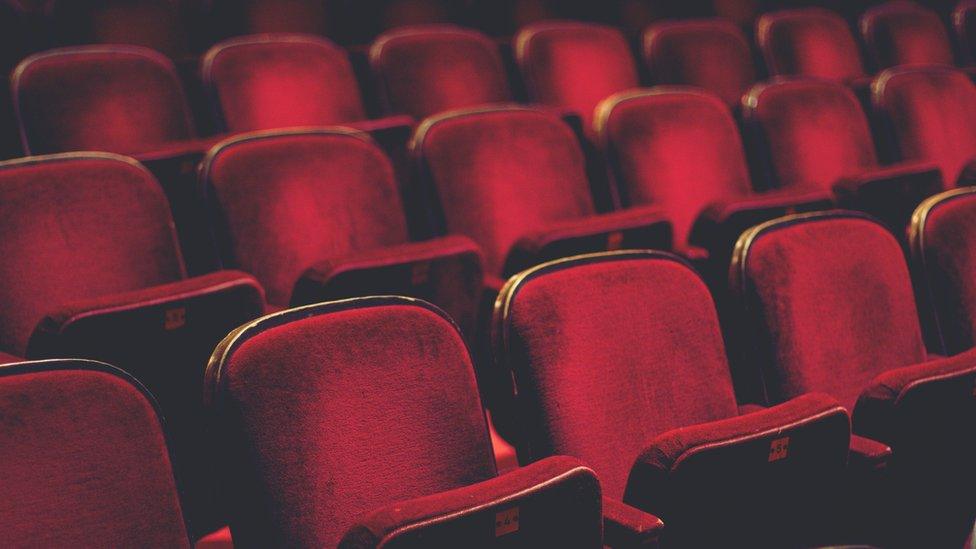Covid-19: Primary pupils and years 12-14 return to school
- Published
- comments
"Everyone is excited to be back"
All primary school pupils and those in years 12 to 14 of post-primary returned to school on Monday.
That follows a decision taken by the executive at its meeting on 16 March.
Primary pupils in P4 to P7 join those in P1 to P3 who returned to school on 8 March.
Pupils returning on Monday have not been in school since before Christmas, their second prolonged absence from the classroom in a year.
They will attend school for at least a week before many schools begin Easter holidays.

Braniel Primary School turned the return into a party, with bouncy castles and ice creams
Pupils at Braniel Primary School in Belfast were welcomed back with bouncy castles and ice creams.
"I know that many of them are anxious about their school work, about what they have done or not done," said principal Diane Dawson.
"I didn't want them coming in and being sat down in a classroom and thinking they were going to be assessed because we are not doing that to them.
"Our children need to recover themselves, they have had 65 days where they have not been in school, that's a long time away from each other."
Jane Thompson, from charity Parentkind, said it was a "very good morning" for pupils and parents, many of whom were concerned for their children's mental health and wellbeing.
Ms Thompson said there needed to be "more focus on the wellbeing recovery and not so much focus on the academic" in the run up to Easter.

'She wore her uniform for hours on Sunday'
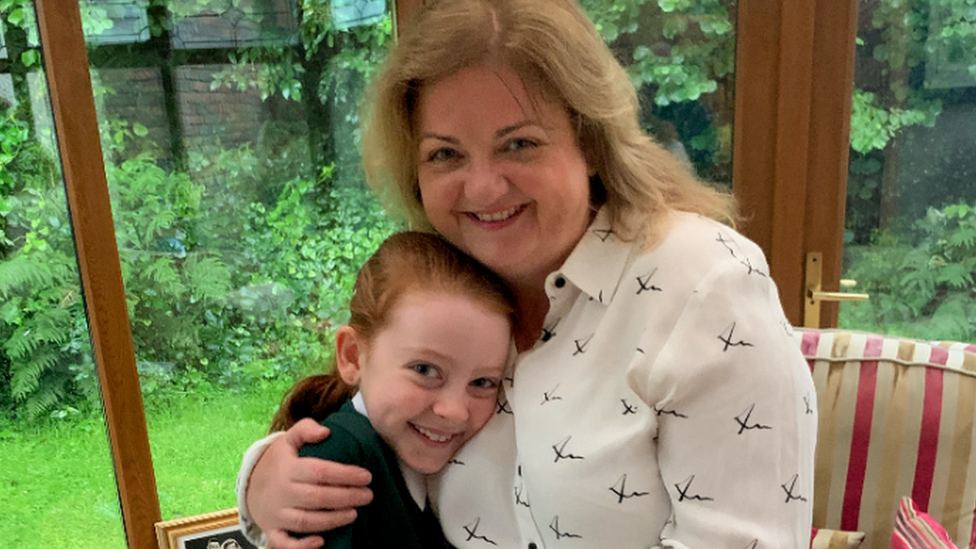
Gracie Arbuckle, pictured with her mother Sharon, said she was really excited to see all of her friends again
Sharon Arbuckle's daughter, Gracie, is just one of the many school pupils returning to the classroom.
"Our daughter tried on her school uniform on Sunday morning and wore it for about an hour or two, she was that excited about getting back to school," said Mrs Arbuckle.
"Thankfully it still fits, the shoes are a bit tight but other than that it's so far so good."
Speaking to BBC Radio Foyle, Gracie - who attends St Columba's Primary School in New Buildings - said she was really excited to see all of her friends again and was looking forward to getting back into a routine.
"It's been so long, it's hard to properly picture it, but I am just happy about the whole thing," she said.
Mrs Arbuckle said she had no concerns about her daughter returning to the classroom.
"Last year, I couldn't wait to get the schools to close because I was so nervous about it - the number of cases in Derry was so high- but now that has changed, the case numbers have dropped and so many people are getting their vaccine," she added.

It is planned that the remaining pupils in years 8 to 11 in post-primaries will return on the 12 April after the Easter break, though that is subject to a review by the executive.
Education Minister Peter Weir told BBC's Good Morning Ulster he was feeling "optimistic" about children returning to the classroom.
"It's very important that the executive, as a whole, has decided to prioritise education," he said.
"The impact on mental health and wellbeing has been devastating for young people and today will be an opportunity for them to get back into a routine which has a level of normality."
Covid testing
The minister said pupils were to be given lateral flow tests in school this week but after Easter testing would "generally speaking be done at home".
Mr Weir said he was expecting parents to be given tests for home use by the end of this week.
There will be mass Covid testing in post-primary schools - with year 12 to 14 pupils and staff asked to test themselves at home twice a week.
After objections from teaching unions, staff will not have to carry out tests on pupils when they return.
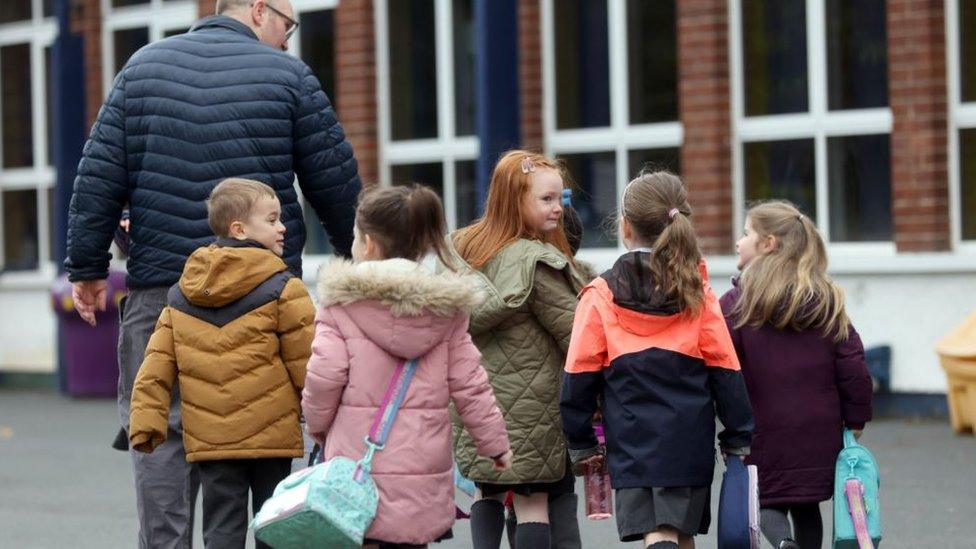
Pupils returning on Monday have not been in school since before Christmas
Instead, schools are being asked to "familiarise" pupils with the tests for home use.
Testing will be rolled out to staff in primary and pre-schools after Easter.
The Department of Education (DE) also said that post-primary pupils must wear face masks in classrooms when they return.
Schools are expected to calculate grades to enable pupils in years 12 to 14 to gain GCSE, AS and A-level and BTEC qualifications this summer.
Some pupils may sit in-class tests provided by the Northern Ireland exams board CCEA to help schools gain evidence for grades.
However, work pupils have completed at home can be used as evidence by schools when deciding grades.
The department has advised schools that breakfast clubs, after school activities and sports fixtures between schools should not take place until after Easter, at least.
Some experts have expressed concerns about the impact of children being out of school and children's sport being banned.
President of the Royal College of Paediatrics and Child Health, Prof Russell Viner, previously told MPs that "when we close schools we close their lives".
Some principals and teaching unions have been critical of the short notice they have received about major changes to previous plans for the return of pupils.
Related topics
- Published19 February 2021
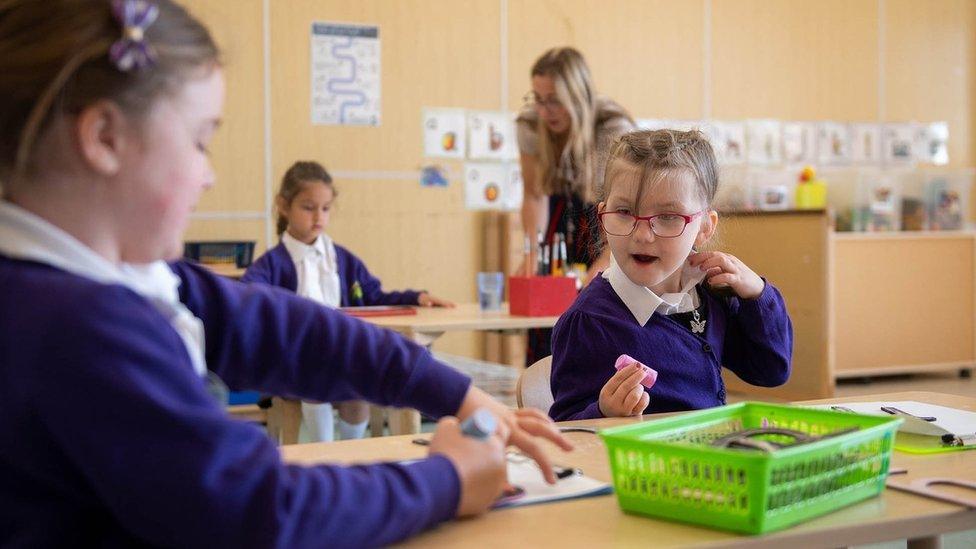
- Published28 February 2021
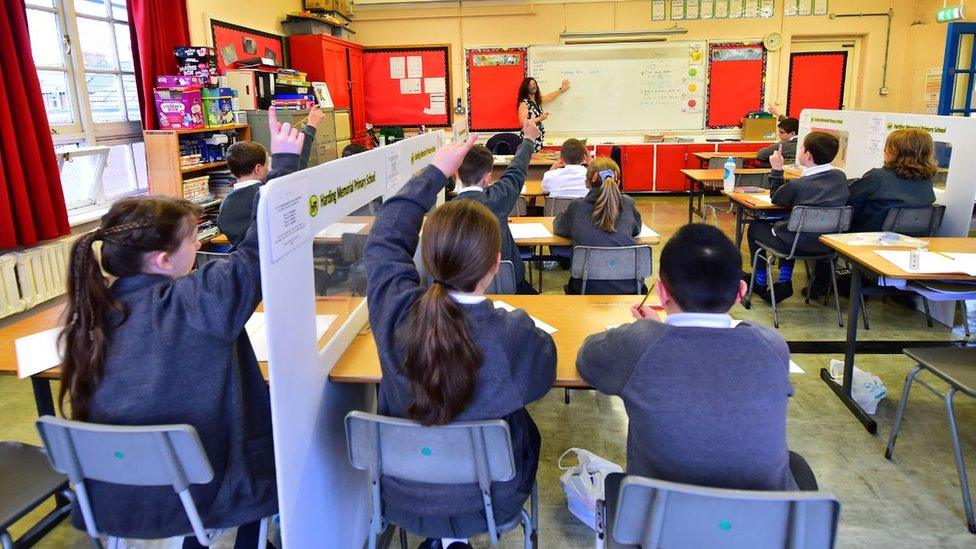
- Published20 March 2021
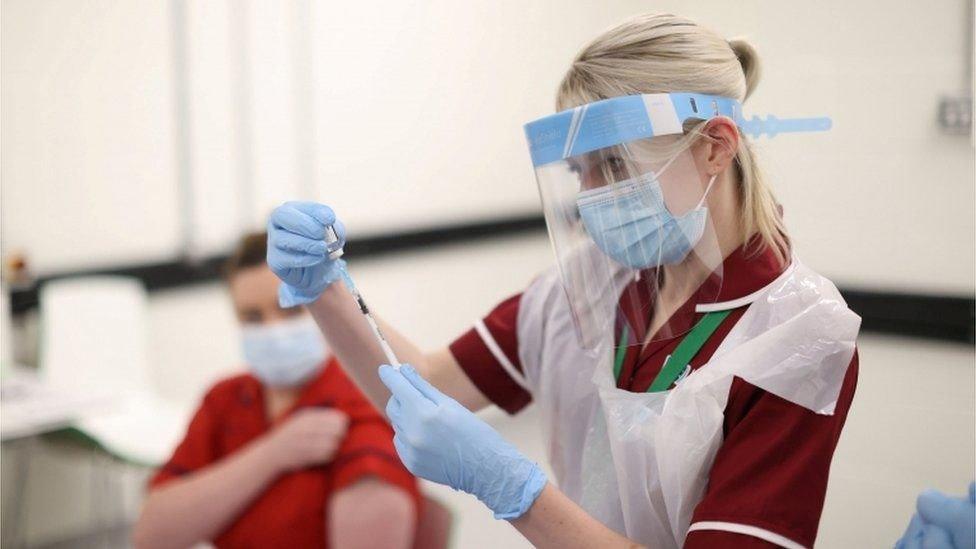
- Published29 July 2021
